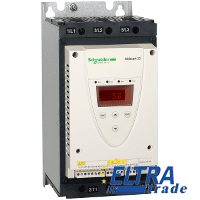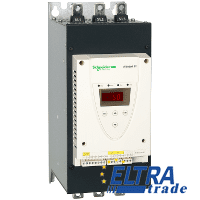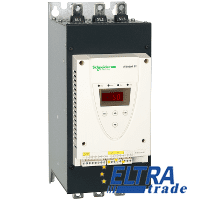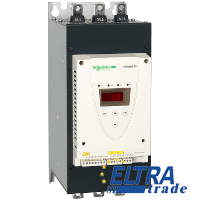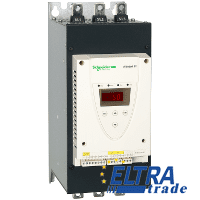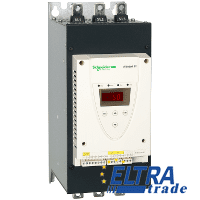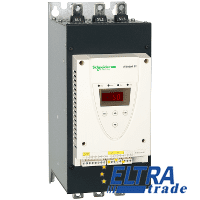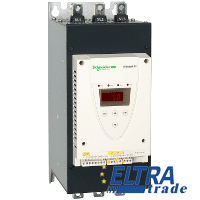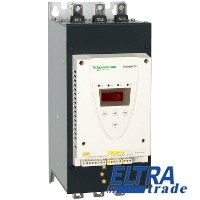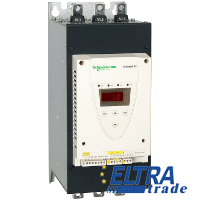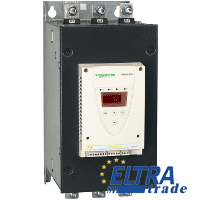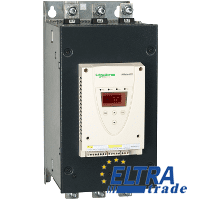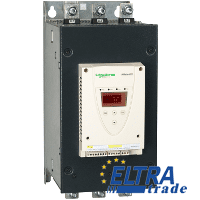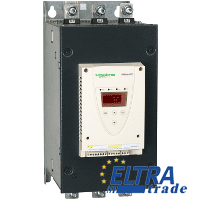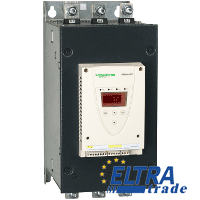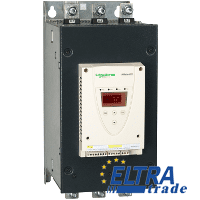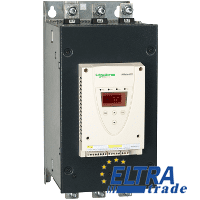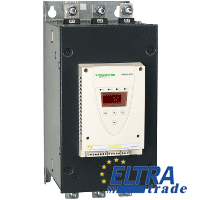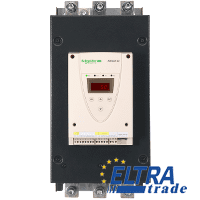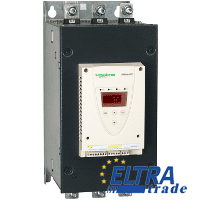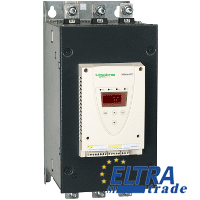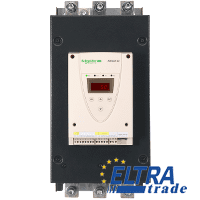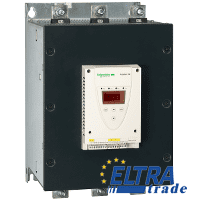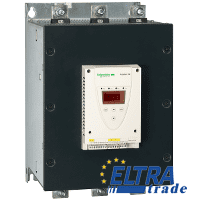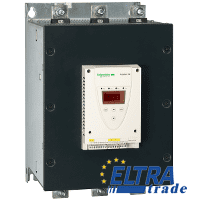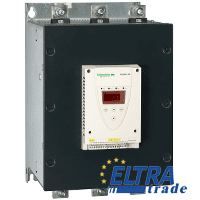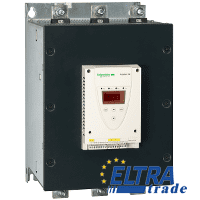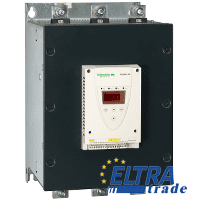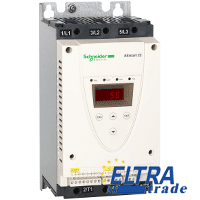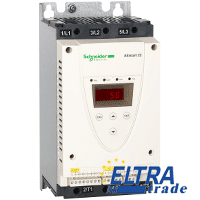| Product destination | Asynchronous motors |
| Product specific application | Severe and standard applications |
| Component name | ATS22 |
| Network number of phases | 3 phases |
| Power supply voltage | 230...440 V (- 15...10 %) |
| Product destination | Asynchronous motors |
| Product specific application | Severe and standard applications |
| Component name | ATS22 |
| Network number of phases | 3 phases |
| Power supply voltage | 230...440 V (- 15...10 %) |
| Product destination | Asynchronous motors |
| Product specific application | Severe and standard applications |
| Component name | ATS22 |
| Network number of phases | 3 phases |
| Power supply voltage | 230...600 V (- 15...10 %) |
| Product destination | Asynchronous motors |
| Product specific application | Severe and standard applications |
| Component name | ATS22 |
| Network number of phases | 3 phases |
| Power supply voltage | 208...600 V (- 15...10 %) |
| Product destination | Asynchronous motors |
| Product specific application | Severe and standard applications |
| Component name | ATS22 |
| Network number of phases | 3 phases |
| Power supply voltage | 230...440 V (- 15...10 %) |
| Product destination | Asynchronous motors |
| Product specific application | Severe and standard applications |
| Component name | ATS22 |
| Network number of phases | 3 phases |
| Power supply voltage | 230...600 V (- 15...10 %) |
| Product destination | Asynchronous motors |
| Product specific application | Severe and standard applications |
| Component name | ATS22 |
| Network number of phases | 3 phases |
| Power supply voltage | 208...600 V (- 15...10 %) |
| Product destination | Asynchronous motors |
| Product specific application | Severe and standard applications |
| Component name | ATS22 |
| Network number of phases | 3 phases |
| Power supply voltage | 230...440 V (- 15...10 %) |
| Product destination | Asynchronous motors |
| Product specific application | Severe and standard applications |
| Component name | ATS22 |
| Network number of phases | 3 phases |
| Power supply voltage | 230...600 V (- 15...10 %) |
| Product destination | Asynchronous motors |
| Product specific application | Severe and standard applications |
| Component name | ATS22 |
| Network number of phases | 3 phases |
| Power supply voltage | 208...600 V (- 15...10 %) |
| Product destination | Asynchronous motors |
| Product specific application | Severe and standard applications |
| Component name | ATS22 |
| Network number of phases | 3 phases |
| Power supply voltage | 230...440 V (- 15...10 %) |
| Product destination | Asynchronous motors |
| Product specific application | Severe and standard applications |
| Component name | ATS22 |
| Network number of phases | 3 phases |
| Power supply voltage | 230...600 V (- 15...10 %) |
| Product destination | Asynchronous motors |
| Product specific application | Severe and standard applications |
| Component name | ATS22 |
| Network number of phases | 3 phases |
| Power supply voltage | 208...600 V (- 15...10 %) |
| Product destination | Asynchronous motors |
| Product specific application | Severe and standard applications |
| Component name | ATS22 |
| Network number of phases | 3 phases |
| Power supply voltage | 230...440 V (- 15...10 %) |
| Product destination | Asynchronous motors |
| Product specific application | Severe and standard applications |
| Component name | ATS22 |
| Network number of phases | 3 phases |
| Power supply voltage | 230...600 V (- 15...10 %) |
| Product destination | Asynchronous motors |
| Product specific application | Severe and standard applications |
| Component name | ATS22 |
| Network number of phases | 3 phases |
| Power supply voltage | 208...600 V (- 15...10 %) |
| Product destination | Asynchronous motors |
| Product specific application | Severe and standard applications |
| Component name | ATS22 |
| Network number of phases | 3 phases |
| Power supply voltage | 230...440 V (- 15...10 %) |
| Product destination | Asynchronous motors |
| Product specific application | Severe and standard applications |
| Component name | ATS22 |
| Network number of phases | 3 phases |
| Power supply voltage | 230...600 V (- 15...10 %) |
| Product destination | Asynchronous motors |
| Product specific application | Severe and standard applications |
| Component name | ATS22 |
| Network number of phases | 3 phases |
| Power supply voltage | 208...600 V (- 15...10 %) |
| Product destination | Asynchronous motors |
| Product specific application | Severe and standard applications |
| Component name | ATS22 |
| Network number of phases | 3 phases |
| Power supply voltage | 230...440 V (- 15...10 %) |
| Product destination | Asynchronous motors |
| Product specific application | Severe and standard applications |
| Component name | ATS22 |
| Network number of phases | 3 phases |
| Power supply voltage | 230...600 V (- 15...10 %) |
| Product destination | Asynchronous motors |
| Product specific application | Severe and standard applications |
| Component name | ATS22 |
| Network number of phases | 3 phases |
| Power supply voltage | 208...600 V (- 15...10 %) |
| Product destination | Asynchronous motors |
| Product specific application | Severe and standard applications |
| Component name | ATS22 |
| Network number of phases | 3 phases |
| Power supply voltage | 230...440 V (- 15...10 %) |
| Product destination | Asynchronous motors |
| Product specific application | Severe and standard applications |
| Component name | ATS22 |
| Network number of phases | 3 phases |
| Power supply voltage | 230...600 V (- 15...10 %) |
| Product destination | Asynchronous motors |
| Product specific application | Severe and standard applications |
| Component name | ATS22 |
| Network number of phases | 3 phases |
| Power supply voltage | 208...600 V (- 15...10 %) |
| Product destination | Asynchronous motors |
| Product specific application | Severe and standard applications |
| Component name | ATS22 |
| Network number of phases | 3 phases |
| Power supply voltage | 230...440 V (- 15...10 %) |
| Product destination | Asynchronous motors |
| Product specific application | Severe and standard applications |
| Component name | ATS22 |
| Network number of phases | 3 phases |
| Power supply voltage | 230...600 V (- 15...10 %) |
| Product destination | Asynchronous motors |
| Product specific application | Severe and standard applications |
| Component name | ATS22 |
| Network number of phases | 3 phases |
| Power supply voltage | 208...600 V (- 15...10 %) |
| Product destination | Asynchronous motors |
| Product specific application | Severe and standard applications |
| Component name | ATS22 |
| Network number of phases | 3 phases |
| Power supply voltage | 230...440 V (- 15...10 %) |
| Product destination | Asynchronous motors |
| Product specific application | Severe and standard applications |
| Component name | ATS22 |
| Network number of phases | 3 phases |
| Power supply voltage | 230...600 V (- 15...10 %) |
The Schneider Electric Altistart 22 is a device that provides a soft start and stops of three-phase asynchronous electric motors by controlling the change in voltage and torque. It is used for three-phase asynchronous electric motors with a squirrel-cage rotor from 4 to 400 kW.
This line of soft starter consists of two product lines:
- Three-phase mains voltage from 230 to 440V, 50/60 Hz (ATS 22···Q).
- Three-phase supply voltage from 208 to 600 V, 50/60 Hz (ATS 22···S6 and ATS 22···S6U).
ATS22 soft starters and soft brakes are pre-programmed for normal use with motor protection class 10.
Altistart 22 models have been designed for applications where the most important requirements are:
- reliability;
- safety of service personnel and equipment;
- ease of commissioning and maintenance.
The device provides thermal protection of the electric motor, makes it easy to control the parameters of the mechanism and, thanks to the SoMove software, can be put into operation immediately after installation.
The bypass function, based on the use of a bypass contactor inside the device, allows the Altistart 22 - ATS22 to be used for applications that require a bypass contactor at the end of the starting process, for example, to reduce heat dissipation by the starting device itself.
Thanks to the built-in terminal in the Altistart 22 - ATS22 device, the user can both configure and adjust parameters, and control their value to check the compliance of the mechanism with the underlying algorithm.
How to wire the Schneider Altistart 22?
When connecting soft starter Schneider altistart 22, separate laying of control circuits and power (power and load) circuits is required. The power cable for supplying power to the motor must be located as far as possible from other power circuits, they should not be laid in the same cable duct. This separation reduces the likelihood of electromagnetic interference in control circuits.
When mounting the ATS22, observe the following requirements:
- The voltage and frequency parameters of the supply network must correspond to the characteristics of the ATS22 device
- A disconnector must be installed between the main supply and the ATS2.
- If a line contactor is used as an isolating device, it must be switched on before or simultaneously with the start command. If there is no voltage at the power terminals L1, L2, and L3 of the ATS22 within 500 ms after the start command is given, a PHF trip occurs.
- External overcurrent protection devices (OCPD), fuses, or circuit breakers must be installed on the mains side of the ATS22.
- Capacitive power factor correction devices cannot be connected to the motor controlled by the ATS22. If power factor correction is required, capacitor banks can be installed on the side of the main. A separate contractor must be used to disconnect the capacitor bank when the motor is stopped or during acceleration and deceleration.
- Softstarter uses power semiconductors to control the motor. When checking the condition of cable runs or motor insulation, do not connect insulation resistance measuring devices or high voltage insulation resistance test equipment to the ATS22, as the test voltage may damage it. Always disconnect the device from the power cables or the motor before starting these checks.
- The ATS22 contains electronic monitoring circuits that monitor the state of the power semiconductors.
- Since solid-state power cells may not be able to completely cut off power to the motor in the event of a failure of the ATS22, an additional isolating device is required on the side of the main. Either a shunt trip circuit breaker or a contactor can be used for this purpose. The isolation device is controlled by the device fault relay ATS22. When a fault occurs, this relay opens its contact, which leads to a guaranteed shutdown of the isolation device and the interruption of the power supply to the starting device and the motor. The characteristics of the isolation device must be such that the motor current can be interrupted when the rotor is locked.
Schneider Altistart 22 fault codes
Let's look at fault codes of Altistart 22 Telemecanique.
Error code | Description |
bPF | Bypass contactor fault |
CFF | Incorrect configuration on power-up |
EtF | External fault |
GrdF | Leakage current trip |
InF | Internal fault |
OCF | Over current |
OHF | Overheating of the ATS22 device |
OLF | Motor overload |
OSF | High voltage |
OtF | Motor overheating is detected by sensors PTC |
PHbd | Phase asymmetry |
PHF | Phase failure (mains or motor side) |
Mains frequency out of range Protection function configured in the PrO menu |
PIF | Phase rotation. The phase sequence does not match the one configured by the PHr parameter in the PrO menu |
trAP | Interrupt code |
SCF | Short circuit at the output of the ATS22 device |
SLF | Modbus timeout |
SnbF | Too many starts |
SSCr | Thyristor short circuit or incorrect connection |
StF | Error: start time mismatch, delayed start |
tbS | Too many starts |
UCF | Current underload |
USF | Low voltage or no voltage |
As well as the errors of the Altistart 22 soft starter displayed on the display of the remote terminal.
Message | Description | Add. information |
InIt | Initialization | Initializing the microcontroller Finding the connection configuration |
COME | Lost connection | Timeout 50ms Message appears after 20 connection attempts |
A-17 | Incorrect key operation | |
CLr | Confirm Fault Reset | The message appears if: The STOP button has been pressed while the ATS22 has tripped on an alarm |
dEUE | Non-compliance with ATS22 | Type mismatch between the remote terminal and connected device |
rOME | ROM failure | Remote terminal ROM failure |
rAME | RAM failure | Remote terminal RAM failure |
CPUE | Processor failure | Remote terminal processor failure |
If you need more information, you can always study the Schneider electric Altistart 22 manual.
We offer full model range of this series. If you need to buy it at the profitable price contact our managers.
